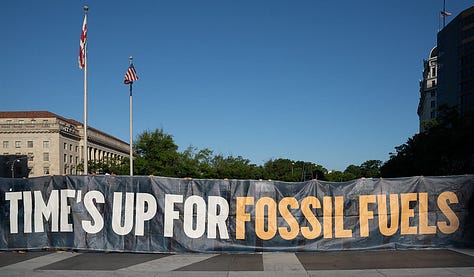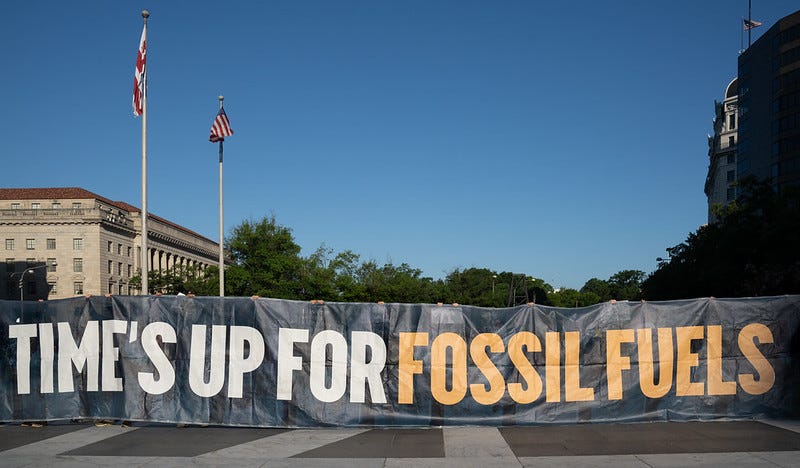Green Lights May 31: Top stories this week
Don't miss a single story of the best from Callaway Climate Insights.






. . . . Welcome back to Green Lights. Here’s our weekly roundup of the best of Callaway Climate Insights. This week, David Callaway explains why oil divestment efforts backfired at the Exxon and Shell general meetings. Mark Hulbert says the increased production of oil and gas in recent years might not mean what we think it does. And Matthew Diebel considers the fallout from Tesla’s decision to cut its charging team. Have a wonderful weekend. For more great climate finance journalism, please support us and subscribe.
. . . . Ask any of the student protesters who shut down college campuses across the U.S. this past month what their goals were and the biggest was usually for the divestment of the universities from any and all holdings associated with Israel. But, writes David Callaway, as climate advocates found out to great distress in the past 10 days, divestment strategies don’t do much to get a company, or a country, to make changes.
. . . . The term ‘green paradox’ is not new, but in the wake of the stunning consolidation in the oil and gas industry in the past year, fed by this week’s deal by ConocoPhillips to buy Marathon Oil for $22.5 billion, it’s worth another look, writes Mark Hulbert. While the surge in oil production since Russia’s invasion of Ukraine and subsequent merger deals have fed speculation that climate activists are losing the global warming campaign, the green paradox states that, in fact, this is a last gasp attempt by Big Oil to wring as much value out of its products as possible before cheaper clean energy finally tips the scales. An interesting theory, to be sure. . . .
. . . . People still aren’t quite sure why Elon Musk massacred his EV charging team last month, Matthew Diebel writes. But other companies are not sitting around and pondering the move. Instead, they are moving in on Tesla’s territory. Laid-off employees are being snapped up, and rivals are eyeing the $5 billion allocated under federal legislation for the National Electric Vehicle Infrastructure program (NEVI), which includes plans for building public fast-charging stations at 50-mile intervals along major highways.
. . . . The U.S. government’s new carbon pricing framework is welcome news to the burgeoning market for charging companies for their harmful emissions, coming this week after countries raised a record $104 billion last year. It’s also a discreet nod to U.S. fossil fuel companies that their plans to take carbon from the air while continuing to produce oil and gas will lead to a viable market, writes David Callaway.
. . . . It’s now the Law of the Sea: Countries must stop emissions from harming the oceans. An international tribunal said last week that human-caused greenhouse gas emissions are a form of marine pollution and that governments must take “all necessary measures” to protect the marine environment.
. . . . A majority of U.S. voters favor suing Big Oil for climate damage. That’s according to a recent poll that shows growing support for the cases brought by cities and states seeking to hold oil companies responsible for pollution and the companies’ alleged deception about the climate effects of their products.
Give ‘em a hug: Healthy trees play a crucial role in mitigating climate change (Euractiv TV)
Vermont’s the first: State to enact law requiring oil companies pay for damage from climate change (The Associated Press)
Forced to move: Residents of a small island threatened by sea-level rise have lost their homes (The Atlantic)
Factcheck: No, volcanoes are not to blame for climate change (The Guardian)







